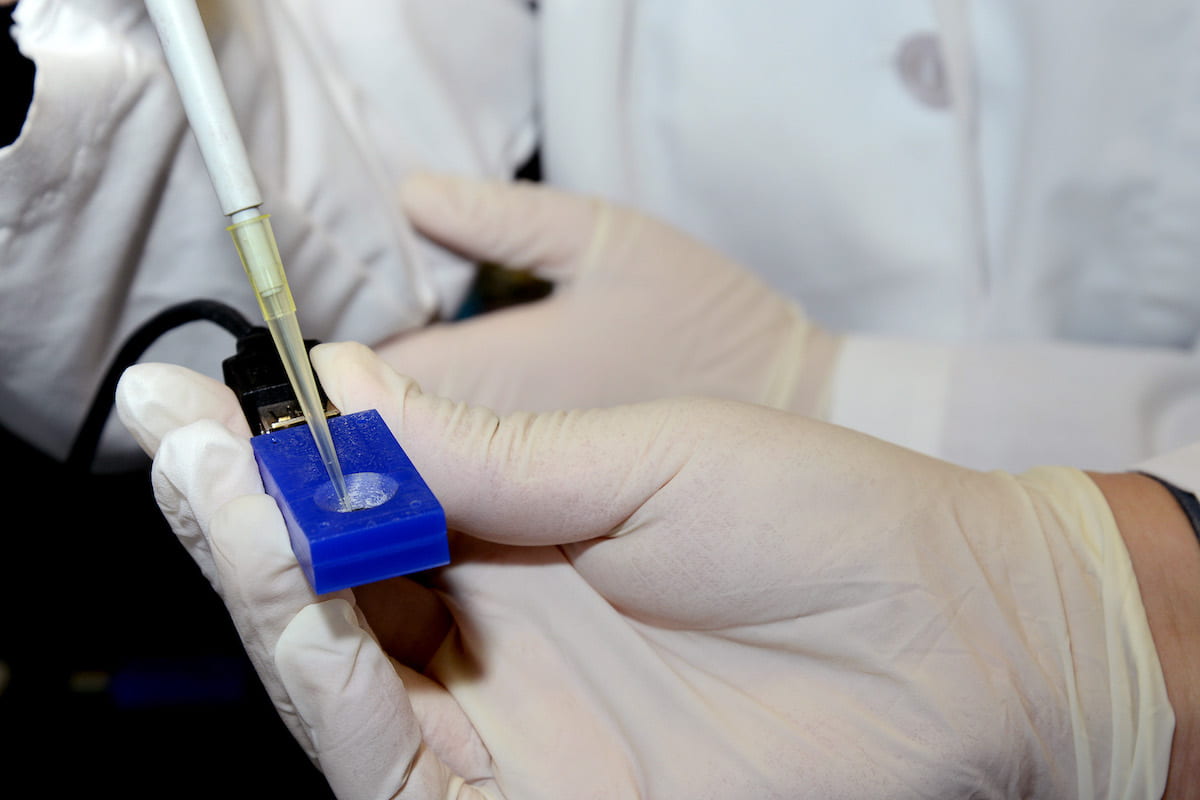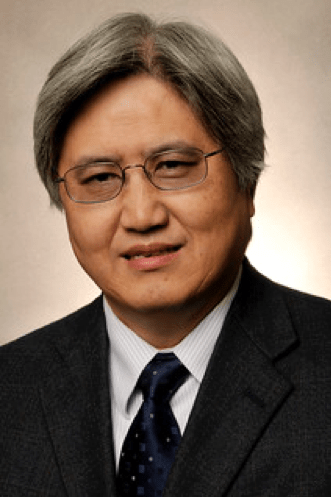Portable Biosensors Provide In-Field Screening for Pathogenic Bacteria

The Problem
Food contaminated by pathogenic microorganisms is estimated to cause 76 million illnesses, 325,000 serious illnesses resulting in hospitalization, and 5,000 deaths in the U.S. each year. USDA/ERS estimates the medical costs and productivity losses associated with E. coli O157, Salmonella, Listeria monocytogenes and Campylobacter alone amount to at least $6.9 billion annually. Current methods for detection of bacteria are time-consuming, expensive, or not specific, and require trained operators with laboratory facilities.
The Research
The objective of this project was to develop portable, automated, nanomaterials-based biosensors for rapid detection of foodborne bacterial pathogens in poultry. The resulting biosensor system consists of a magnetic nanobeads bioseparator to separate target bacteria from a poultry sample, as well as an impedance or fluorescent detector to spot target bacteria. The portable biosensor system has been designed, fabricated and evaluated for the screening of Salmonella typhimurium in samples from poultry on the farm, processed chicken carcasses in plants and poultry products in the market. The biosensors are able to provide the required specificity (strain level), sensitivity (10-100 colony forming units, or CFU, per milliliter or CFU/gram) and time (less than 1 hour). The testing data can be directly transmitted to a network immediately through a smartphone.
The Bottom Line
The poultry industry and federal regulatory agencies may apply this novel biosensing method to food safety inspection and quality control to ensure food safety and security. The technology helps reduce foodborne diseases and consequently related medical costs. Application of the nanotechnology-based biosensors would also enable the poultry industry to be benefited economically in terms of prevention of product recalls with the microbial contamination of poultry products.
The Researcher

Yanbin Li
Distinguished Professor and holder of the Tyson Endowed Chair in Biosensing Engineering, Li has been on the faculty of the departments of Biological and Agricultural Engineering and Poultry Science since 1993.
Li received a B.S. in agricultural engineering from Shenyang Agricultural University, an M.S. in agricultural engineering from the University of Nebraska-Lincoln, and a Ph.D. in agricultural engineering from Pennsylvania State University. His research focuses on biosensors and bioinstrumentation, microbial predictive modeling, quantitative risk assessment, and food safety engineering.
